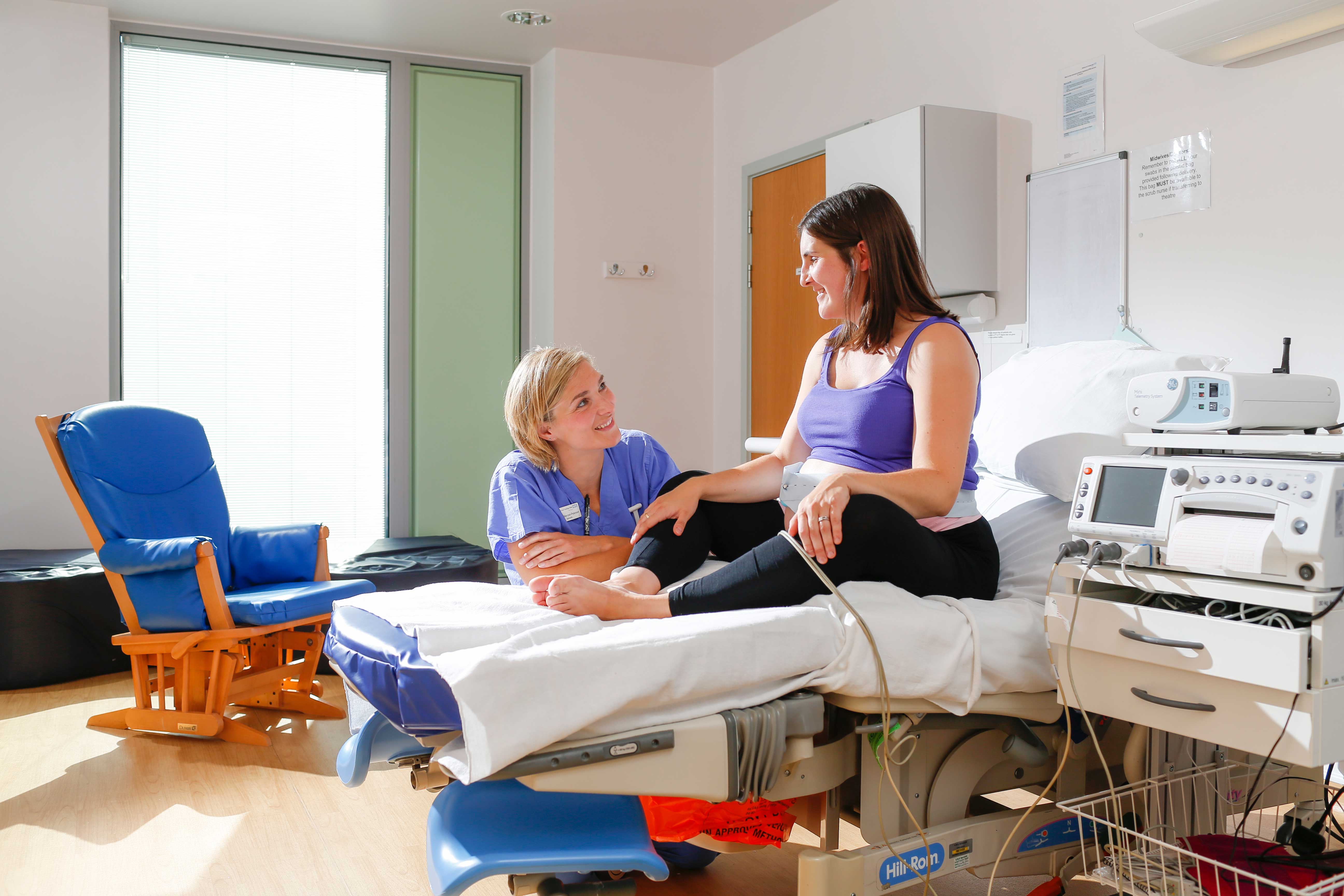*Please note, during this video it mentions the non-hormonal method of induction called Dilapan. This method is no longer used at MTW.
It is estimated that only 4% of babies are born on their due date, with many babies arriving later rather than earlier. There are many reasons why you may be advised to have your labour induced and the risks and benefits should be fully explained to you before you agree. Inducing labour without a good reason is not recommended as this can lead to an increased likelihood of a caesarean section, ventouse (suction cap) or forceps delivery, compared to those who go into labour naturally.
Around 1 in every 4 births at Tunbridge Wells Hospital have their labours induced for a variety of reasons. These may include;
- Your pregnancy goes past your due date
- Your waters have been broken for longer than 24 hours without labour starting
- There are concerns about your or your baby’s health e.g. gestational diabetes, pre-eclampsia or your baby is smaller than expected
The method used to induce your labour will depend on the reason for induction. Please read our Induction of Labour leaflet for more information on the methods we offer at Tunbridge Wells hospital.
It often takes 24-72 hours to get into active labour and this is normal.
Read more about our induction of labour statistics in this infographic.
The induction process begins on the antenatal ward, where you can have one nominated person with you to stay overnight. We advise that you bring plenty of magazines or books to keep yourself entertained. You may also wish to bring a sleeping bag and pillow for your birth partner as we will be unable to provide this. Tunbridge Wells hospital has free guest WiFi for your use on the wards. When it is appropriate and safe to do so, you will be transferred to Delivery Suite to continue the next stage of your induction.
You may be offered a hormone infusion drip called Syntocinon to help start or progress your labour. You can read more about this here.
We offer a variety of pain relief options during the induction process. Please click here for more information.
For more information on Induction of labour please click here
For more information on Inductions of labour and transfers to another hospital click here
Induction of labour when pregnancy continues to 41 weeks or more
Labour usually starts naturally before 42 weeks. There is some evidence that certain risks associated with a pregnancy continuing beyond 41 weeks may increase over time, although the actual risks remain low. Induction of labour (starting labour artificially) from 41 weeks may reduce these risks, and you should also consider how induction of labour may affect your birth experience.
NICE recommends that you should discuss your preferences for birth with us from early on in your pregnancy and confirm these towards the end of your pregnancy. Your midwife will offer to discuss the options with you at your 36 or 38 week appointment and provide you with information about the benefits and risks of waiting for labour to start naturally, having an induction or planning a caesarean birth. We will respect your decision whichever option you choose. You do not have to decide immediately. Please ask questions, look at other information and take time to discuss your decision with others if you wish.
If your pregnancy is low risk and you choose to be induced, we will offer to arrange a date between 41 weeks and 41 weeks plus 6 days. You may choose to wait longer if that is your preference.
If you have any questions please get in touch with your community midwife.

